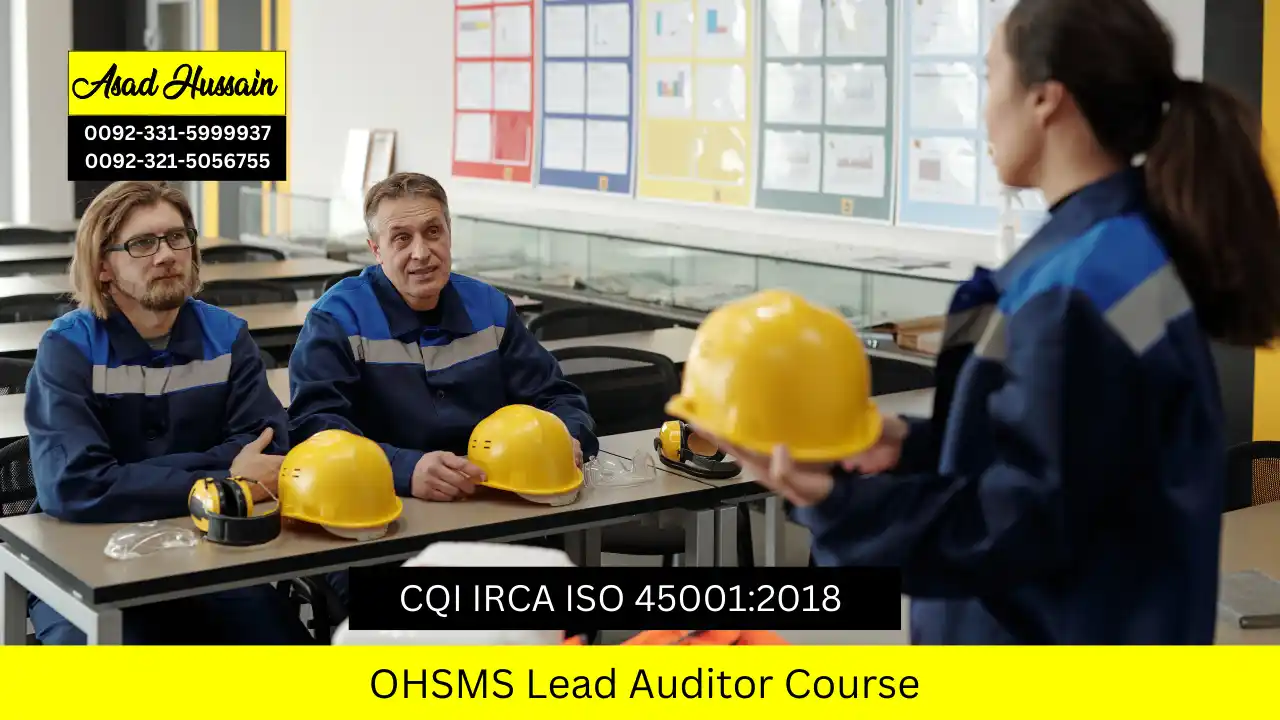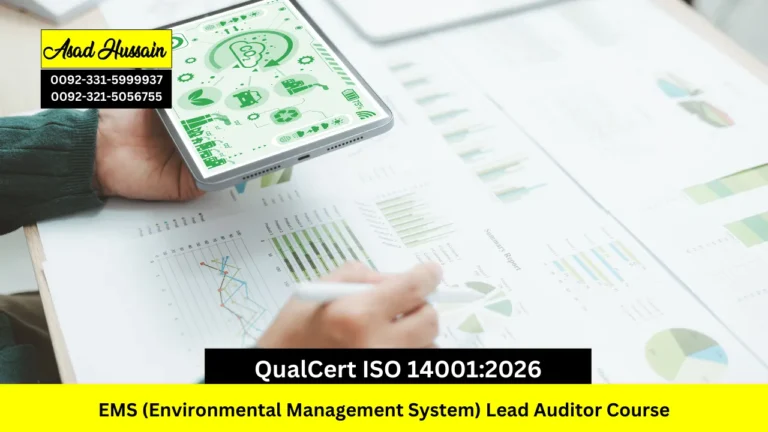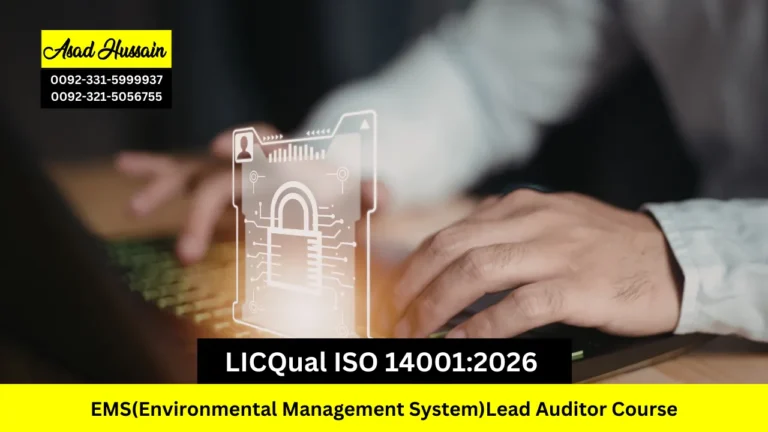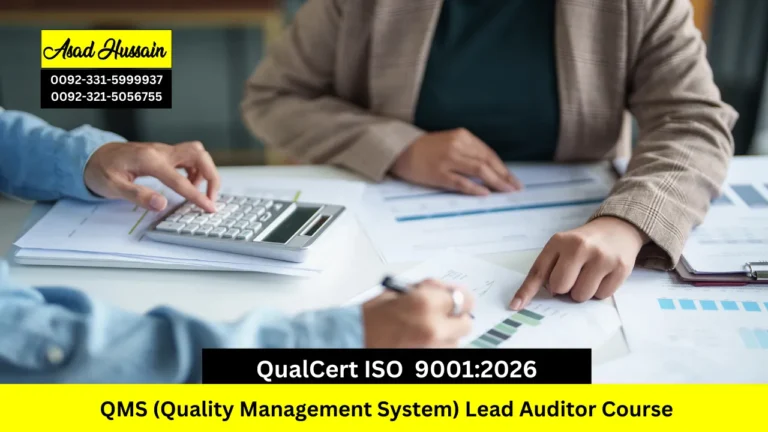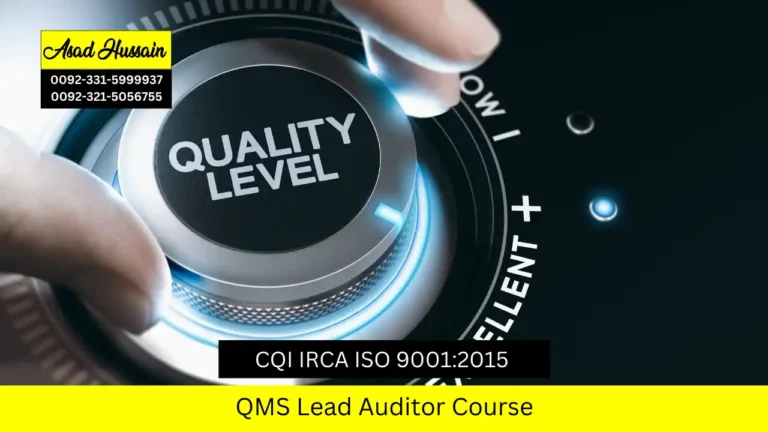Elevate your career in occupational health and safety with the CQI IRCA ISO 45001:2018 OHSMS Lead Auditor Course, the definitive training program designed for professionals seeking to master ISO 45001 auditing. This globally recognized course prepares you to lead audits of Occupational Health and Safety Management Systems (OHSMS), ensuring organizations comply with international safety standards. With increasing regulatory demands and the growing importance of workplace safety, becoming a certified OHSMS lead auditor has never been more crucial for advancing your professional credentials.
This comprehensive ISO 45001:2018 Lead Auditor Course equips you with the essential knowledge and practical skills to assess, verify, and improve occupational health and safety systems effectively. By gaining expertise in the ISO 45001:2018 standard, you will understand how to identify risks, ensure legal compliance, and promote a safer working environment. The course blends theoretical foundations with hands-on audit techniques, giving you confidence to conduct audits independently and contribute to continuous improvement initiatives.
Achieving CQI IRCA certification through this course validates your competence as a lead auditor and enhances your credibility in the OHS field. This qualification is recognized worldwide, opening doors to diverse career opportunities in industries where occupational health and safety management is paramount. Whether you are an internal auditor, safety officer, consultant, or manager, this lead auditor training sets you apart as an expert in ISO 45001 auditing.
The CQI IRCA ISO 45001:2018 OHSMS Lead Auditor Course covers all critical aspects of Occupational Health and Safety Management Systems and the auditing process. You will begin by exploring the fundamentals of ISO 45001:2018, understanding its structure, clauses, and key requirements.CQI IRCA ISO 45001:2018 OHSMS Lead Auditor Course details the principles of occupational health and safety management, including risk identification, hazard controls, legal obligations, and worker participation.
Participants will also gain in-depth knowledge of ISO 19011 guidelines for auditing management systems, with a focus on how to plan, conduct, report, and follow up on OHSMS audits. Practical audit exercises simulate real-world scenarios, enhancing your ability to gather objective evidence, handle challenging situations, and communicate findings effectively. CQI IRCA ISO 45001:2018 OHSMS Lead Auditor Course emphasizes lead auditor responsibilities, ethical considerations, and leadership skills necessary for managing audit teams and delivering impactful audit results.
Designed to meet CQI IRCA’s stringent standards, this OHSMS Lead Auditor Course ensures you develop the competencies required to lead first, second, and third-party audits. Upon completion, you will be able to evaluate organizational compliance, identify nonconformities, and recommend corrective actions that drive continual improvement in occupational health and safety performance.
Enroll in the CQI IRCA ISO 45001:2018 Lead Auditor Course today to gain the skills and certification needed to excel in occupational health and safety auditing. CQI IRCA ISO 45001:2018 OHSMS Lead Auditor Course empowers you to promote safer workplaces, support regulatory compliance, and become a trusted leader in OHSMS auditing worldwide.
Program Highlights
The CQI IRCA ISO 45001:2018 OHSMS Lead Auditor Course Consist of following core units.
Mandatory Units
- Introduction to Occupational Health and Safety Management Systems (OHSMS) and ISO 45001:2018
- ISO 45001:2018 Requirements
- Fundamentals of Auditing and ISO 19011 Guidelines
- Audit Planning and Preparation
- Conducting the Audit – On-site Activities
- Audit Reporting and Follow-Up
- Leading an Audit Team
To ensure candidates are well-prepared for the course, the following eligibility criteria must be met:
Minimum Age:
Applicants must be at least 18 years old at the time of enrollment.
Educational Qualifications:
Candidates should have completed a minimum of secondary school education or an equivalent qualification. A basic understanding of occupational health and safety principles is preferred. While not mandatory, completion of an ISO 45001:2018 Foundation or Awareness course is strongly recommended prior to enrollment.
Professional Experience:
Ideal candidates will have relevant workplace experience related to Occupational Health and Safety Management Systems (OHSMS). This may include roles involving health, safety, and environmental (HSE) compliance, internal auditing, risk assessments, or active participation in safety programs and initiatives. Previous audit experience is advantageous but not required.
English Language Proficiency:
Since the course is conducted and assessed in English, candidates must demonstrate adequate proficiency in the language, including:
- Reading: Ability to comprehend technical standards and guidance materials
- Writing: Competence to complete written assignments and the final exam effectively
- Speaking and Listening: Ability to actively engage in group discussions, presentations, and audit role-plays
1. Introduction to Occupational Health and Safety Management Systems (OHSMS) and ISO 45001:2018
- Understand the purpose, benefits, and scope of an Occupational Health and Safety Management System (OHSMS).
- Explain the role of ISO 45001:2018 in enhancing workplace health and safety performance.
- Identify essential concepts, terminology, and principles related to OHSMS and ISO 45001.
- Recognize the significance of hazard identification, risk assessment, and incident prevention strategies.
- Comprehend the structure of ISO 45001:2018 and its alignment with other ISO management system standards (Annex SL).
- Appreciate the auditor’s role in fostering compliance and continuous improvement in occupational health and safety.
2. ISO 45001:2018 Requirements
- Interpret and apply the key clauses and requirements of ISO 45001:2018 effectively.
- Assess the organization’s context and understand its impact on the OHSMS.
- Understand leadership responsibilities and the importance of worker participation as per the standard.
- Evaluate organizational approaches to planning for occupational health and safety risks and opportunities, including objective setting.
- Understand operational controls and procedures for managing health and safety risks.
- Analyze how organizations monitor, measure, and evaluate their occupational health and safety performance.
- Explain the role of continual improvement and compliance with legal obligations in ISO 45001 implementation.
3. Fundamentals of Auditing and ISO 19011 Guidelines
- Describe the purpose, types, and fundamental principles of auditing management systems.
- Understand the framework and guidance outlined in ISO 19011:2018 for auditing management systems.
- Identify auditor responsibilities, ethical conduct, and the requirements for gathering audit evidence.
- Differentiate among first-party (internal), second-party (supplier), and third-party (certification) audits.
- Recognize the significance of ISO/IEC 17021 in the certification process.
4. Audit Planning and Preparation
- Develop detailed audit plans that align with defined audit scope, objectives, and criteria.
- Conduct comprehensive document reviews to evaluate the readiness of the Occupational Health and Safety Management System for audit.
- Prepare effective audit checklists and assign roles and responsibilities within the audit team.
- Plan audit logistics including resources, schedules, and communication protocols.
- Identify and manage potential audit risks and logistical challenges ahead of on-site activities.
5. Conducting the Audit – On-site Activities
- Facilitate opening meetings and establish a positive rapport with auditees.
- Apply effective communication and interviewing techniques during audit activities.
- Collect and verify objective evidence through observation, questioning, and document review.
- Document audit findings clearly, factually, and systematically.
- Maintain professionalism and effectively manage challenging behaviors encountered during audits.
6. Audit Reporting and Follow-Up
- Classify audit findings into categories such as nonconformities, observations, and opportunities for improvement.
- Produce clear, concise, and evidence-based reports on nonconformities.
- Prepare comprehensive audit reports that fulfill organizational and ISO standard requirements.
- Conduct closing meetings effectively with auditees and relevant stakeholders.
- Understand and manage the follow-up process, including corrective action verification and review.
7. Leading an Audit Team
- Explain the responsibilities and essential qualities of an effective lead auditor.
- Assign tasks and provide clear guidance to audit team members for efficient audit execution.
- Facilitate audit team meetings to ensure consistent evaluation of evidence and findings.
- Manage conflicts, time, resources, and expectations throughout the audit process.
- Demonstrate strong leadership skills when coordinating multi-auditor or multi-site audits.
The CQI IRCA ISO 45001:2018 OHSMS Lead Auditor Course is designed for professionals who are involved in occupational health and safety and are seeking to develop or enhance their auditing skills.CQI IRCA ISO 45001:2018 OHSMS Lead Auditor Course is ideal for:
Health and Safety Managers, Officers, and Advisors responsible for maintaining and improving safety performance in their organizations.
- Internal Auditors who wish to gain formal certification and expand their capability to lead comprehensive OHSMS audits.
- Environmental, Health, and Safety (EHS) Professionals aiming to integrate ISO 45001 auditing with other ISO management systems.
- Quality and Compliance Managers involved in multi-standard audits and legal compliance for workplace safety.
- Consultants and Trainers offering guidance on the implementation and certification of Occupational Health and Safety Management Systems.
- Anyone aspiring to become a certified CQI IRCA Lead Auditor for ISO 45001 and pursue a career in third-party auditing or certification services.
Whether you’re looking to lead internal audits or conduct external third-party assessments, this course provides the essential skills, knowledge, and globally recognized certification needed to advance in the field of occupational health and safety auditing.

